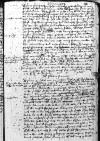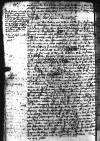Was wir am neheren mal E(wer) H(erlichkei)t cf. Ioannes DANTISCUS to Stanisław KOSTKA 1547-01-01 — 1547-06-19, CIDTC IDL 6644, letter lost⌊zugeschriebencf. Ioannes DANTISCUS to Stanisław KOSTKA 1547-01-01 — 1547-06-19, CIDTC IDL 6644, letter lost⌋ und in demsulbtenn / wegen Albrecht I von Hohenzollern-Ansbach (Albrecht von Brandenburg) (*1490 – †1568), 1511-1525 Grand Master of the Teutonic Order; from 1525 to his death Duke in Prussia as a liegeman of the Polish king; son of Friedrich V of Brandenburg der Ältere and Sophia Jagiellon (daughter of Casimir IV Jagiellon), nephew of Sigismund I, King of Poland; founder of the university in Königsberg (1544)⌊f(urstlichen) d(urchlauch)tAlbrecht I von Hohenzollern-Ansbach (Albrecht von Brandenburg) (*1490 – †1568), 1511-1525 Grand Master of the Teutonic Order; from 1525 to his death Duke in Prussia as a liegeman of the Polish king; son of Friedrich V of Brandenburg der Ältere and Sophia Jagiellon (daughter of Casimir IV Jagiellon), nephew of Sigismund I, King of Poland; founder of the university in Königsberg (1544)⌋ briefe an alle hern disser lande redte on the margin⌈an alle Council of Royal Prussia the most important local authority in Royal Prussia. It consisted of two bishops (of Ermland (Warmia), who served as the Council’s president, and of Kulm (Chełmno)), three voivodes (of Kulm, Marienburg (Malbork), and Pomerania), three castellans (of Kulm, Elbing (Elbląg), and Gdańsk (Danzig)), three chamberlains (of Kulm, Marienburg, and Pomerania), and representatives of the three Great Prussian Cities – Gdańsk, Thorn (Toruń), and Elbing (ACHREMCZYK 2016, p. 17-18)⌊hern disser lande redteCouncil of Royal Prussia the most important local authority in Royal Prussia. It consisted of two bishops (of Ermland (Warmia), who served as the Council’s president, and of Kulm (Chełmno)), three voivodes (of Kulm, Marienburg (Malbork), and Pomerania), three castellans (of Kulm, Elbing (Elbląg), and Gdańsk (Danzig)), three chamberlains (of Kulm, Marienburg, and Pomerania), and representatives of the three Great Prussian Cities – Gdańsk, Thorn (Toruń), and Elbing (ACHREMCZYK 2016, p. 17-18)⌋an alle hern disser lande redte on the margin⌉, / des copie superinscribed⌈copiecopie superinscribed⌉ wir danebenn sch E(wer) H(erlichkei)t zugeschicket, / ferner an den hern Achatius von Zehmen (Achacy Cema) (*ca. 1485 – †1565), 1517-1531 Chamberlain of Pomerania, 1531-1546 Castellan of Gdańsk (Danzig), 1545-1546 Voivode of Kulm (Chełmno), 1546-1565 Voivode of Marienburg (Malbork) (SBPN 1, p. 194-195; ORACKI 1984, p. 38-39; Urzędnicy 5/2, p. 198; PSB 4, p. 325-326)⌊marienburgisch(en) wojwojdennAchatius von Zehmen (Achacy Cema) (*ca. 1485 – †1565), 1517-1531 Chamberlain of Pomerania, 1531-1546 Castellan of Gdańsk (Danzig), 1545-1546 Voivode of Kulm (Chełmno), 1546-1565 Voivode of Marienburg (Malbork) (SBPN 1, p. 194-195; ORACKI 1984, p. 38-39; Urzędnicy 5/2, p. 198; PSB 4, p. 325-326)⌋ zubestellen, / angezeigt, / czweifelenn wir nicht, solchs E(wer) H(erlichkei)t bekom(m)en / und genugsam eingenome(n) habe. / Dieweil wir aber aus des superinscribed in place of crossed-out gestrigs tags / vom⌈gestrigs tags / vom aus des aus des superinscribed in place of crossed-out gestrigs tags / vom⌉ grosmechtige(n) hern marienburgischen wojwoden / cf. Achatius von ZEHMEN (CEMA) to Ioannes DANTISCUS 1547-06-16, CIDTC IDL 6645, letter lost⌊schreibenncf. Achatius von ZEHMEN (CEMA) to Ioannes DANTISCUS 1547-06-16, CIDTC IDL 6645, letter lost⌋ vorstandenn on the margin in place of crossed-out bekomen / darin nichtes von obgedachten f(urstlicher) d(urchlauch)t brife gemeldet und auch noch nicht bekom(m)en gehabt⌈bekomen / darin nichtes von obgedachten f(urstlicher) d(urchlauch)t brife gemeldet und auch noch nicht bekom(m)en gehabt vorstandenn vorstandenn on the margin in place of crossed-out bekomen / darin nichtes von obgedachten f(urstlicher) d(urchlauch)t brife gemeldet und auch noch nicht bekom(m)en gehabt⌉, / das ehr gedochte briefe ihm noch nicht zukomen seindt, / ehr auch darumb noch kein wissentschafcht habe, / bitten wir freuntlich, wo solche noch nicht an den orth geschicket, / aufs erste zubeste zu vorschaffen, damit die neben diesem hiebegelegten brief b unserm brife und der abschrieft f(urstlicher) d(urchlauch)t anderem schreiben, / so ehr an uns in sunderheit gethan / und doch den un hern redten mitzuteilen bogeret, / dem grosmechtigen hernn marienburgischenn wojwoden / zu schanden kom(m)en mochtenn, die uns auch was ihr bodenckenn und rath sei, / auf beidte f(urstlicher) d(urchlauch)t schreibenn, / daran uns allen nicht wenig gelegenn, / wolte wissenn lassenn, / damit solchs au sunder seumen, / an Sigismund I Jagiellon (Zygmunt I) (*1467 – †1548), King of Poland and Grand Duke of Lithuania (1506-1548); Duke of Głogów (Glogau) (1499-1506), Duke of Opava (1501-1506), Governor of Silesia (1504-1506); son of King Kazimierz IV Jagiellon and Elisabeth of Austria⌊ko(ningliche) m(ajeste)tSigismund I Jagiellon (Zygmunt I) (*1467 – †1548), King of Poland and Grand Duke of Lithuania (1506-1548); Duke of Głogów (Glogau) (1499-1506), Duke of Opava (1501-1506), Governor of Silesia (1504-1506); son of King Kazimierz IV Jagiellon and Elisabeth of Austria⌋ mag gebracht  AAWO, AB, D. 70, f. 290v werdenn, / ader dem durch andere wege vorkomenn, / wie den [...] hidden by binding⌈[...][...] hidden by binding⌉ E(wer) H(erlichkei)t die wir gotlichen genaden bevelenn / w v am besten bei sich wirdt bedenckenn und boradtslagenn. / Sunst haben wir auch dem hern marienburgischen underkemerer und seinem ohem Ioanni Lubozewskii auf Ewer Herlichkeit schreibenn, / was die thumrei bolangt, alle furderung erzeigt, / wie sie den das sulbst Ewer Herlichkeit, die wir gotlichen genaden bovelenn, / nicht vorhalten werden on the margin in place of crossed-out Dat(ae) aus⌈Dat(ae) or Dat(um)⌈Dat(ae)Dat(ae) or Dat(um)⌉ aus Sunst haben wir auch dem hern Fabian von Zehmen (Fabian Cema) (†1580), brother of Achatius von Zehmen; 1530 royal courtier; 1531-1546 Chamberlain of Pomerania; 1546-1547 Chamberlain of Marienburg (Malbork); 1547-1549 Chamberlain of Kulm (Chełmno); 1549-1556 Castellan of Gdańsk (Danzig); 1556-1565 Voivode of Pomerania; 1566-1580 Voivode of Marienburg (ORACKI 1984, p. 39)⌊marienburgischen underkemererFabian von Zehmen (Fabian Cema) (†1580), brother of Achatius von Zehmen; 1530 royal courtier; 1531-1546 Chamberlain of Pomerania; 1546-1547 Chamberlain of Marienburg (Malbork); 1547-1549 Chamberlain of Kulm (Chełmno); 1549-1556 Castellan of Gdańsk (Danzig); 1556-1565 Voivode of Pomerania; 1566-1580 Voivode of Marienburg (ORACKI 1984, p. 39)⌋ und seinem ohem Jan Lubodzieski (*ca. 1523 – †1562), studied in Wittenberg; in 1548 inscribed in metrica of Cracow University; 1547 Ermland canon; 1551 bishop of Kulm (KOPICZKO 2, p. 202-203)⌊Ioanni LubozewskiiJan Lubodzieski (*ca. 1523 – †1562), studied in Wittenberg; in 1548 inscribed in metrica of Cracow University; 1547 Ermland canon; 1551 bishop of Kulm (KOPICZKO 2, p. 202-203)⌋ auf E(wer) H(erlichkei)t cf. Stanisław KOSTKA to Ioannes DANTISCUS Marienburg (Malbork), 1547-06-16, CIDTC IDL 3126⌊schreibenncf. Stanisław KOSTKA to Ioannes DANTISCUS Marienburg (Malbork), 1547-06-16, CIDTC IDL 3126⌋, / was die thumrei bolangt, alle furderung erzeigt, / wie sie den das sulbst E(wer) H(erlichkei)t, die wir gotlichen genaden bovelenn, / nicht vorhalten werden Sunst haben wir auch dem hern marienburgischen underkemerer und seinem ohem Ioanni Lubozewskii auf Ewer Herlichkeit schreibenn, / was die thumrei bolangt, alle furderung erzeigt, / wie sie den das sulbst Ewer Herlichkeit, die wir gotlichen genaden bovelenn, / nicht vorhalten werden on the margin in place of crossed-out Dat(ae) aus⌉.
AAWO, AB, D. 70, f. 290v werdenn, / ader dem durch andere wege vorkomenn, / wie den [...] hidden by binding⌈[...][...] hidden by binding⌉ E(wer) H(erlichkei)t die wir gotlichen genaden bevelenn / w v am besten bei sich wirdt bedenckenn und boradtslagenn. / Sunst haben wir auch dem hern marienburgischen underkemerer und seinem ohem Ioanni Lubozewskii auf Ewer Herlichkeit schreibenn, / was die thumrei bolangt, alle furderung erzeigt, / wie sie den das sulbst Ewer Herlichkeit, die wir gotlichen genaden bovelenn, / nicht vorhalten werden on the margin in place of crossed-out Dat(ae) aus⌈Dat(ae) or Dat(um)⌈Dat(ae)Dat(ae) or Dat(um)⌉ aus Sunst haben wir auch dem hern Fabian von Zehmen (Fabian Cema) (†1580), brother of Achatius von Zehmen; 1530 royal courtier; 1531-1546 Chamberlain of Pomerania; 1546-1547 Chamberlain of Marienburg (Malbork); 1547-1549 Chamberlain of Kulm (Chełmno); 1549-1556 Castellan of Gdańsk (Danzig); 1556-1565 Voivode of Pomerania; 1566-1580 Voivode of Marienburg (ORACKI 1984, p. 39)⌊marienburgischen underkemererFabian von Zehmen (Fabian Cema) (†1580), brother of Achatius von Zehmen; 1530 royal courtier; 1531-1546 Chamberlain of Pomerania; 1546-1547 Chamberlain of Marienburg (Malbork); 1547-1549 Chamberlain of Kulm (Chełmno); 1549-1556 Castellan of Gdańsk (Danzig); 1556-1565 Voivode of Pomerania; 1566-1580 Voivode of Marienburg (ORACKI 1984, p. 39)⌋ und seinem ohem Jan Lubodzieski (*ca. 1523 – †1562), studied in Wittenberg; in 1548 inscribed in metrica of Cracow University; 1547 Ermland canon; 1551 bishop of Kulm (KOPICZKO 2, p. 202-203)⌊Ioanni LubozewskiiJan Lubodzieski (*ca. 1523 – †1562), studied in Wittenberg; in 1548 inscribed in metrica of Cracow University; 1547 Ermland canon; 1551 bishop of Kulm (KOPICZKO 2, p. 202-203)⌋ auf E(wer) H(erlichkei)t cf. Stanisław KOSTKA to Ioannes DANTISCUS Marienburg (Malbork), 1547-06-16, CIDTC IDL 3126⌊schreibenncf. Stanisław KOSTKA to Ioannes DANTISCUS Marienburg (Malbork), 1547-06-16, CIDTC IDL 3126⌋, / was die thumrei bolangt, alle furderung erzeigt, / wie sie den das sulbst E(wer) H(erlichkei)t, die wir gotlichen genaden bovelenn, / nicht vorhalten werden Sunst haben wir auch dem hern marienburgischen underkemerer und seinem ohem Ioanni Lubozewskii auf Ewer Herlichkeit schreibenn, / was die thumrei bolangt, alle furderung erzeigt, / wie sie den das sulbst Ewer Herlichkeit, die wir gotlichen genaden bovelenn, / nicht vorhalten werden on the margin in place of crossed-out Dat(ae) aus⌉.
 AAWO, AB, D. 70, f. 290v werdenn, / ader dem durch andere wege vorkomenn, / wie den [...] hidden by binding⌈[...][...] hidden by binding⌉ E(wer) H(erlichkei)t die wir gotlichen genaden bevelenn / w v am besten bei sich wirdt bedenckenn und boradtslagenn. / Sunst haben wir auch dem hern marienburgischen underkemerer und seinem ohem Ioanni Lubozewskii auf Ewer Herlichkeit schreibenn, / was die thumrei bolangt, alle furderung erzeigt, / wie sie den das sulbst Ewer Herlichkeit, die wir gotlichen genaden bovelenn, / nicht vorhalten werden on the margin in place of crossed-out Dat(ae) aus⌈Dat(ae) or Dat(um)⌈Dat(ae)Dat(ae) or Dat(um)⌉ aus Sunst haben wir auch dem hern
AAWO, AB, D. 70, f. 290v werdenn, / ader dem durch andere wege vorkomenn, / wie den [...] hidden by binding⌈[...][...] hidden by binding⌉ E(wer) H(erlichkei)t die wir gotlichen genaden bevelenn / w v am besten bei sich wirdt bedenckenn und boradtslagenn. / Sunst haben wir auch dem hern marienburgischen underkemerer und seinem ohem Ioanni Lubozewskii auf Ewer Herlichkeit schreibenn, / was die thumrei bolangt, alle furderung erzeigt, / wie sie den das sulbst Ewer Herlichkeit, die wir gotlichen genaden bovelenn, / nicht vorhalten werden on the margin in place of crossed-out Dat(ae) aus⌈Dat(ae) or Dat(um)⌈Dat(ae)Dat(ae) or Dat(um)⌉ aus Sunst haben wir auch dem hern 
